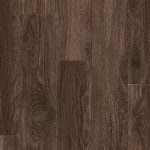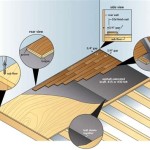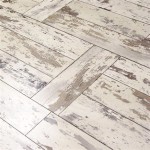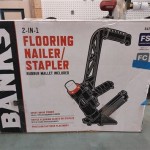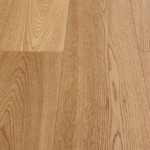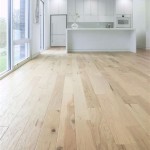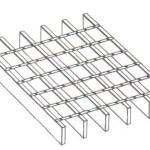Glue Down vs. Floating Vinyl Plank Flooring: Essential Considerations
When selecting vinyl plank flooring, understanding the differences between glue down and floating installations is crucial. Both methods have their unique advantages and drawbacks, making it essential to evaluate your specific needs and preferences.
Glue Down Vinyl Plank Flooring
Installation: Glue down vinyl planks are permanently adhered to the subfloor using a specialized adhesive. This method requires a smooth, level subfloor and professional installation to ensure proper bonding. Pros:- Durability: Glue down vinyl planks are extremely durable and resistant to wear and tear, making them suitable for high-traffic areas.
- Water Resistance: Once properly installed, glue down vinyl planks create a seamless barrier that prevents moisture penetration.
- Stability: The adhesive bonding prevents the planks from shifting or buckling, ensuring stability over time.
- Difficult Installation: Professional installation is required, and the process can be time-consuming.
- Permanent Bonding: Once installed, glue down vinyl planks cannot be easily removed or replaced in case of damage.
- Subfloor Preparation: The subfloor must be perfectly smooth and level, which may require additional preparation.
Floating Vinyl Plank Flooring
Installation: Floating vinyl planks are not glued to the subfloor but instead interlock together using a click-lock system. They are installed over an underlayment that provides cushioning and moisture protection. Pros:- Easy Installation: Floating vinyl planks can be installed by DIYers with minimal effort, using the click-lock mechanism.
- Removable: Floating vinyl planks can be easily removed and replaced in case of damage or changes.
- Versatile: Floating vinyl planks can be installed over various subfloors, including concrete, plywood, and existing flooring.
- Less Durable: Floating vinyl planks are less durable than glue down vinyl planks, making them less suitable for high-traffic areas.
- Water Resistance: Floating vinyl planks have seams between planks, which can allow moisture penetration if not properly sealed.
- Shifting: Floating vinyl planks can shift or buckle over time, especially in areas with heavy loads or extreme temperature changes.
Conclusion
The choice between glue down and floating vinyl plank flooring depends on your specific requirements. Glue down vinyl planks provide superior durability, water resistance, and stability but require professional installation and are difficult to remove. Floating vinyl planks are easier to install, more versatile, and removable but may have lower durability and water resistance. Consider your flooring needs, budget, and installation capabilities to make an informed decision.
Glue Down Vs Floating Luxury Vinyl Flooring

Floating Vinyl Plank Flooring Vs Glue Down 99cent Floor

Glue Down Vs Floating Lvp Which Is Better Whole Cabinet Supply

Glue Down Vs Floating Vinyl Plank North Eastern Group Realty

Luxury Vinyl Flooring Vs Glue Direct Wood

Glue Down Vs Floating Wood Floor Installation Finfloor

Vinyl Plank Flooring Floating Vs Glue Down This Or That Diy

Understanding Luxury Vinyl Installation Floating Vs Glue Down

Floating Floors Vs Non What Gives

Glue Down Vs Floating Flooring Installation Which One Is Better Floorset

